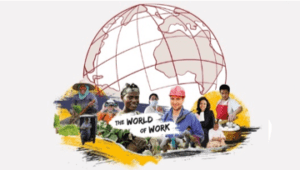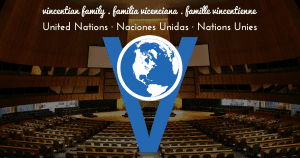Mark Twain, wrote “History doesn’t repeat itself, but It often rhymes.” The history of Social Development at the UN continues to echo but more rhymes are needed so that it leads to a fulfillment of the promises of placing people at the center of development, eradicating poverty, providing productive employment and decent work, and creating social inclusion.
 These four commitments are the goals of the the Copenhagen Declaration and Programme of Action adopted in 1995. This historic gathering, The World Summit for Social Development, brought together over 185 nations and marked a defining moment in how the world addressed the key challenge of building “a society for all.” Sadly, these goals remain aspirational. But the good news is that Millennial Development Goals (2000) and the Sustainable Development Goals (2015) have rhymed with the World Summit and updated as well as expanded our understanding of how we must act as a global community if we truly intend to “leave no one behind.” Our hope is strong that in the next few years as we accelerate action to achieve the SDGs by 2030, as the UN moves forward with a Summit on Social Development in the fall of 2023, and a Summit of the Future in 2024, we will continue to hear the rhymes of Copenhagen loud and clear.
These four commitments are the goals of the the Copenhagen Declaration and Programme of Action adopted in 1995. This historic gathering, The World Summit for Social Development, brought together over 185 nations and marked a defining moment in how the world addressed the key challenge of building “a society for all.” Sadly, these goals remain aspirational. But the good news is that Millennial Development Goals (2000) and the Sustainable Development Goals (2015) have rhymed with the World Summit and updated as well as expanded our understanding of how we must act as a global community if we truly intend to “leave no one behind.” Our hope is strong that in the next few years as we accelerate action to achieve the SDGs by 2030, as the UN moves forward with a Summit on Social Development in the fall of 2023, and a Summit of the Future in 2024, we will continue to hear the rhymes of Copenhagen loud and clear.
At the 61st session of the Commission on Social Development 6-15 February 2023, the functional commission of ECOSOC that is responsible for monitoring and advancing the goals of Copenhagen, the focus was on creating full and productive employment and decent work for all as a way of overcoming inequalities, accelerating recovery from Covid-19 and moving to the achievement of the 2030 Agenda. The work of the 61st session deserves praise in that it highlighted social protection as a front-line response to protect people’s health, jobs and incomes and further that digital, green and care economies provide many opportunities for decent work. However, we ended the session with the knowledge that more than 60% of the workers in the world are in the informal economy and lack social protections. The unemployment rate among young people globally is is over 15%. The majority of the young people not employed, or in education, or training are women. Further, the priority theme resolution noted “with urgency and concern the growing inequality and 1.2 billion people living in multidimensional poverty subsequent to the pandemic.”
It is clear as we examine the goals of Copenhagen, the SDGs and the signs of our times that echoing and rhyming is not all that is needed. We need more intensive ways of working together as a global community. To move forward we must attend to the vital links between poverty, unemployment and social disintegration. We must strengthen international cooperation for social development, with particular attention to universal and equitable access to education, health care, social protection systems and the internet. We must attend to the critical connections between social, economic, and environmental justice. The erosion of social cohesion and trust in public institutions appears to be worsening and will undermine this work unless we confront misinformation and corruption in governments. Wars, economic disasters and the threats of new pandemics all point to a sense of urgency in moving forward in new and positive ways. Words must not just rhyme, they must move us to action.
There is hope in a multidimensional, multisectoral response. There is hope in the willingness to engage in continuing study and dialogue at UN conferences. That hope is our catalyst for change. A change that can be built from “solidarity” described as “A love for one’s own good and for that of others that brings people together in stable groups with the purpose of attaining a common good.”(Compendium of the Social Doctrine of the Church, p. 150) Solidarity, understood in its most profound meaning, is a way of making history, (Pope Francis, Brothers and Sisters to Us [Fratelli Tutti], no. 116). It is a firm and persevering determination to commit oneself to the good of all and of each individual, because we are all really responsible for all. (St. John Paul II, On Social Concern [Sollicitudo rei Socialis], no. 38)
What rhymes with Solidarity? Necessary. What rhymes with Justice? Peace.
By Mary Ann Dantuono, Esq.
AIC NGO representative to the UN








0 Comments